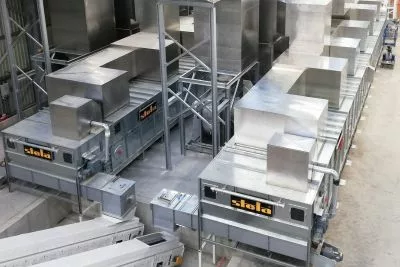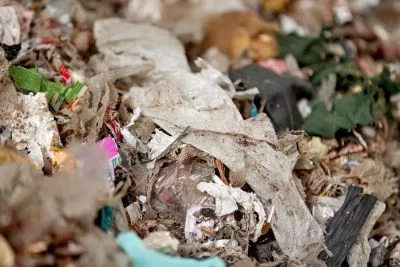Amidst the global march towards sustainability and fuel efficiency, a drying revolution is making waves, quietly powering a significant transformation in how we view and utilize waste. This initiative is a vital part of the wider movement towards alternative fuels like Refuse Derived Fuel (RDF), Solid Shredded Waste (SSW), and biosolids, signaling a major leap in the recycling industry’s journey towards eco-friendly energy solutions. As industries, including cement production, increasingly adopt more sustainable and fuel-efficient practices, STELA’s low temperature belt drying solutions are emerging as a key to shaping a greener future.
Alternative Fuels: The Cornerstone of Sustainable Energy
The recycling sector is turning its focus towards alternative fuels. RDF, SSW, and biosolids are attracting attention for their potential to enhance the energy value in generation processes and increase the efficiency of incineration plants. Notably, these alternative fuels are also becoming essential in cement production, serving as a sustainable energy source that can significantly reduce carbon emissions. STELA stands at the forefront, offering tailor-made belt dryers designed to meet these specific challenges head-on.
Drying Systems: Catalysts for the Circular Economy
STELA drying systems play a crucial role in maximizing the value of waste materials. By utilizing low-temperature drying processes, STELA’s solutions not only enhance the energy potential of materials but also decrease operating expenses. This approach is particularly relevant as the demand for alternatives to diminishing and environmentally harmful fossil fuels grows. Safely processed through STELA’s low-temperature drying systems, refuse-derived fuels, and biosolids become viable for traditional energy sources and as alternative fuels, showcasing a tangible application of circular economy principles.
Materials like RDF, SRF, MSW, and biosolids are finding new life thanks to STELA’s drying technology. This process removes excess moisture, transforming them into valuable renewable fuels.
Beyond Energy Generation:
While dried materials boost efficiency in power plants, the benefits extend further:
- Sustainable Cement Production: Dried alternative fuels enable greener practices in the cement industry.
- Industrial Processes: Across various industries, these fuels can replace fossil fuels for cleaner and more sustainable operations.
- Waste Reduction: By diverting waste from landfills and turning it into fuel, STELA’s drying technology promotes a true circular economy.
STELA’s Advantage: Customized Drying Solutions
STELA’s low-temperature drying systems are specifically designed to optimize this process, ensuring:
- Optimal product quality: Consistent drying for efficient fuel use.
- Reliable process control: Precise control over the drying process for maximum efficiency.
- Effective moisture extraction: Significant reduction in moisture content for improved fuel performance.
- Extended shelf life: Dried materials can be stored for longer periods without degradation.
- Reduced transportation costs: Lighter weight due to reduced moisture content translates to lower transport costs.

STELA’s Global Impact: Achieving Sustainability Through Cleaner Fuels
Over 450 installations worldwide showcase the positive impact of STELA’s drying technology across various industries. Here’s how STELA empowers businesses to achieve sustainable operations:
- Cleaner Burning: Our drying process removes excess moisture from alternative fuels, enabling cleaner burning and significantly reduced emissions.
- Waste Heat Efficiency: Unlike traditional systems, STELA utilizes waste heat from existing processes to power drying operations. This reduces reliance on fossil fuels and promotes a circular economy.
- Increased Energy Output: Drier fuels generate more energy, leading to greater efficiency in power generation or industrial applications.
By implementing STELA’s drying technology, businesses can achieve a trifecta of sustainability benefits: cleaner fuels, reduced environmental impact, and improved energy efficiency.

STELA’s Edge: Custom Efficiency for Diverse Needs
STELA’s drying solutions are designed for unmatched adaptability, meeting the specific requirements of a wide range of projects. These systems are both flexible and resilient, featuring innovative features like automatic final moisture control and “top-down” ventilation with frequency-controlled fans. By offering a customizable solution that can be easily tailored to different materials and processes, STELA demonstrates its commitment to innovation and efficiency.

